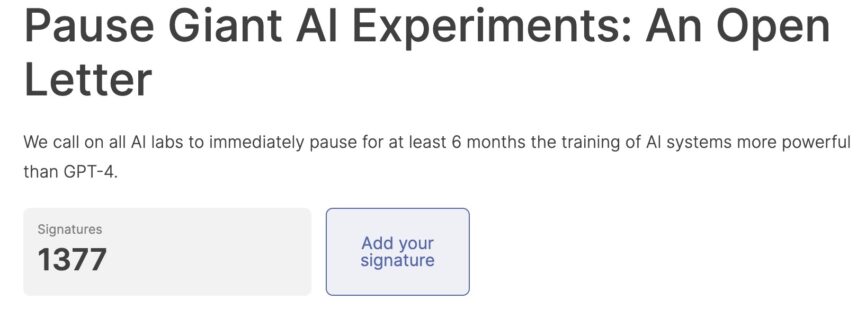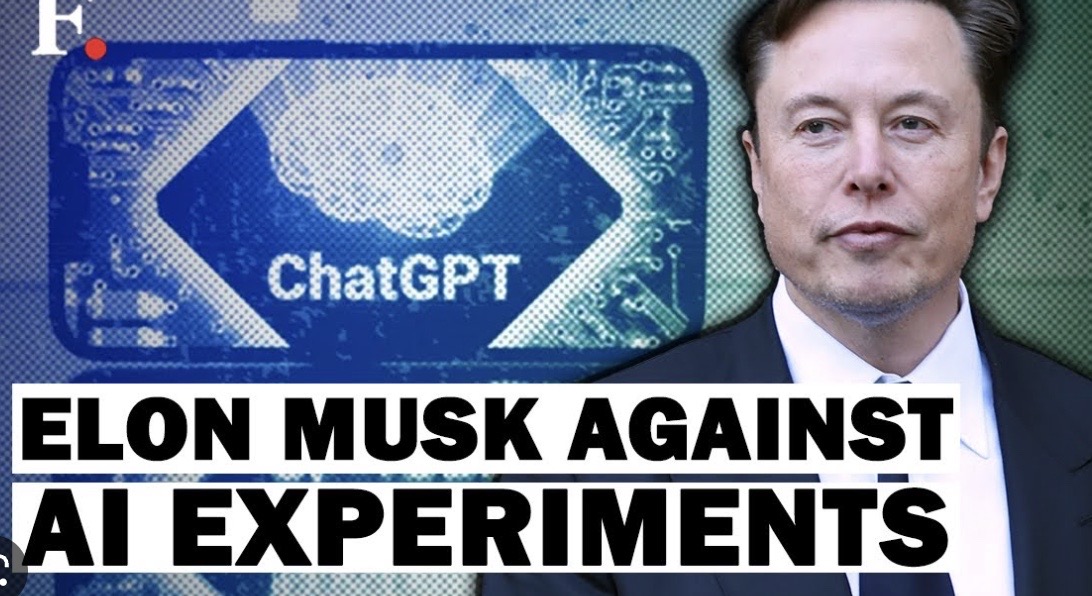Con una lettera aperta pubblicata dalla no profit Future of Life Institute Elon Musk e altri mille ricercatori hanno lanciato l’allarme sui pericoli dell’intelligenza artificiale. La frase a più alto impatto è quella che pone un interrogativo forte alla comunità scientifica: “L’intelligenza artificiale pone profondi rischi per la società e l’umanità e per questo servirebbe una pausa di almeno sei mesi per l’addestramento dei sistemi più avanzati”.
Elon Musk e gli altri studiosi chiedono uno stop o una moratoria dei governi per evitare il tanto temuto ‘scenario Terminator’, al fine di consentire lo sviluppo di protocolli di sicurezza condivisi.
A sottoscrivere la lettera ci sono il co-fondatore di Apple Steve Wozniak ma anche quelli di Pinterest e Skype, così come i fondatori delle start up di intelligenza artificiale Stability AI e Charatcters.ai. A firmare la lettera oltre mille manager ed esperti a livello mondiale.

Musk non vuole demonizzare una nuova ed emergente tecnologia anche perchè vuole migliorare il cervello intelligente con Neuralink dopo aver, conquistato lo spazio con SpaceX e l’automotive con Tesla. Musk ha investito molto in termini finanziari in società di intelligenza artificiale legate a Microsoft per stare al passo con il futuro più avanzato a cui tutti aspirano per essere strategicamente deterrenti ed attrattivi.
Subscribe to our newsletter!
A destare preoccupazione, per ora però, sono i sistemi più avanzati di GPT-4, la chatbot di OpenAI capace di raccontare barzellette e superare facilmente esami come quello per diventare avvocato, scrive l’Ansa.
“I sistemi potenti di IA dovrebbero essere sviluppati solo quando si ha fiducia che i loro effetti saranno positivi e i loro rischi gestibili”, si enfatizza nella lettera. La missiva è pragmatica quando parla di una “corsa fuori controllo allo sviluppo e al dispiegamento di potenti menti digitali che nessuno, neanche i loro creatori, possono capire, prevedere e controllare”.
La Cina ha già avvertito gli Usa : “l’intelligenza artificiale non diventi uno strumento o un’arma per perfezionare la sorveglianza orwelliana tecno-totalitaria“.
L’Intelligenza Artificiale potrebbe orientare verso la distruzione del mondo evocando tanti film di fantascienza e per questo motivo al fine di evitare solo il pensiero di conseguenze catastrofiche i big dell’hi-tech chiedono una pausa di sei mesi da usare per lo “sviluppo congiunto e l’implementazione di protocolli condivisi” che assicurino la “sicurezza” dei sistemi “al di là di ogni ragionevole dubbio”. La lettera invita i laboratori di IA a concentrarsi nel rendere più “accurati, trasparenti, credibili e leali” gli attuali sistemi invece di correre verso lo sviluppo di mezzi ancora più potenti. “La società ha fatto una pausa su altre tecnologie con effetti potenzialmente catastrofici – prosegue la lettera -. Possiamo farlo anche in questo caso. Godiamoci una lunga estate dell’IA, e non corriamo impreparati verso l’autunno”.
Testo integrale della lettera
AI systems with human-competitive intelligence can pose profound risks to society and humanity, as shown by extensive research and acknowledged by top AI labs. As stated in the widely-endorsed Asilomar AI Principles, Advanced AI could represent a profound change in the history of life on Earth, and should be planned for and managed with commensurate care and resources. Unfortunately, this level of planning and management is not happening, even though recent months have seen AI labs locked in an out-of-control race to develop and deploy ever more powerful digital minds that no one – not even their creators – can understand, predict, or reliably control.
Contemporary AI systems are now becoming human-competitive at general tasks, and we must ask ourselves: Should we let machines flood our information channels with propaganda and untruth? Should we automate away all the jobs, including the fulfilling ones? Should we develop nonhuman minds that might eventually outnumber, outsmart, obsolete and replace us? Should we risk loss of control of our civilization? Such decisions must not be delegated to unelected tech leaders. Powerful AI systems should be developed only once we are confident that their effects will be positive and their risks will be manageable. This confidence must be well justified and increase with the magnitude of a system’s potential effects. OpenAI’s recent statement regarding artificial general intelligence, states that “At some point, it may be important to get independent review before starting to train future systems, and for the most advanced efforts to agree to limit the rate of growth of compute used for creating new models.” We agree. That point is now.
Therefore, we call on all AI labs to immediately pause for at least 6 months the training of AI systems more powerful than GPT-4. This pause should be public and verifiable, and include all key actors. If such a pause cannot be enacted quickly, governments should step in and institute a moratorium.
AI labs and independent experts should use this pause to jointly develop and implement a set of shared safety protocols for advanced AI design and development that are rigorously audited and overseen by independent outside experts. These protocols should ensure that systems adhering to them are safe beyond a reasonable doubt. This does not mean a pause on AI development in general, merely a stepping back from the dangerous race to ever-larger unpredictable black-box models with emergent capabilities.
AI research and development should be refocused on making today’s powerful, state-of-the-art systems more accurate, safe, interpretable, transparent, robust, aligned, trustworthy, and loyal.
In parallel, AI developers must work with policymakers to dramatically accelerate development of robust AI governance systems. These should at a minimum include: new and capable regulatory authorities dedicated to AI; oversight and tracking of highly capable AI systems and large pools of computational capability; provenance and watermarking systems to help distinguish real from synthetic and to track model leaks; a robust auditing and certification ecosystem; liability for AI-caused harm; robust public funding for technical AI safety research; and well-resourced institutions for coping with the dramatic economic and political disruptions (especially to democracy) that AI will cause.
Humanity can enjoy a flourishing future with AI. Having succeeded in creating powerful AI systems, we can now enjoy an “AI summer” in which we reap the rewards, engineer these systems for the clear benefit of all, and give society a chance to adapt. Society has hit pause on other technologies with potentially catastrophic effects on society. We can do so here. Let’s enjoy a long AI summer, not rush unprepared into a fall.

